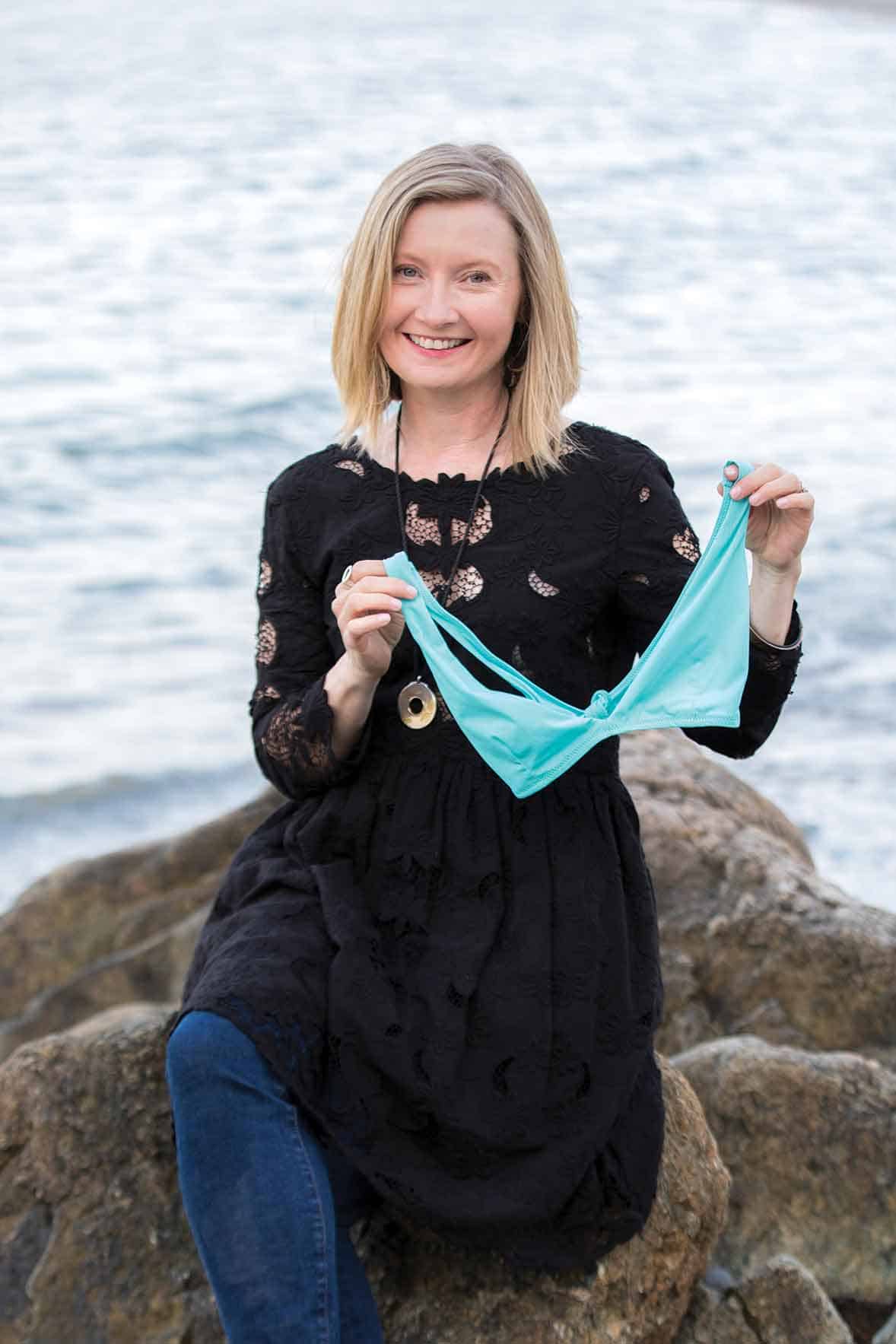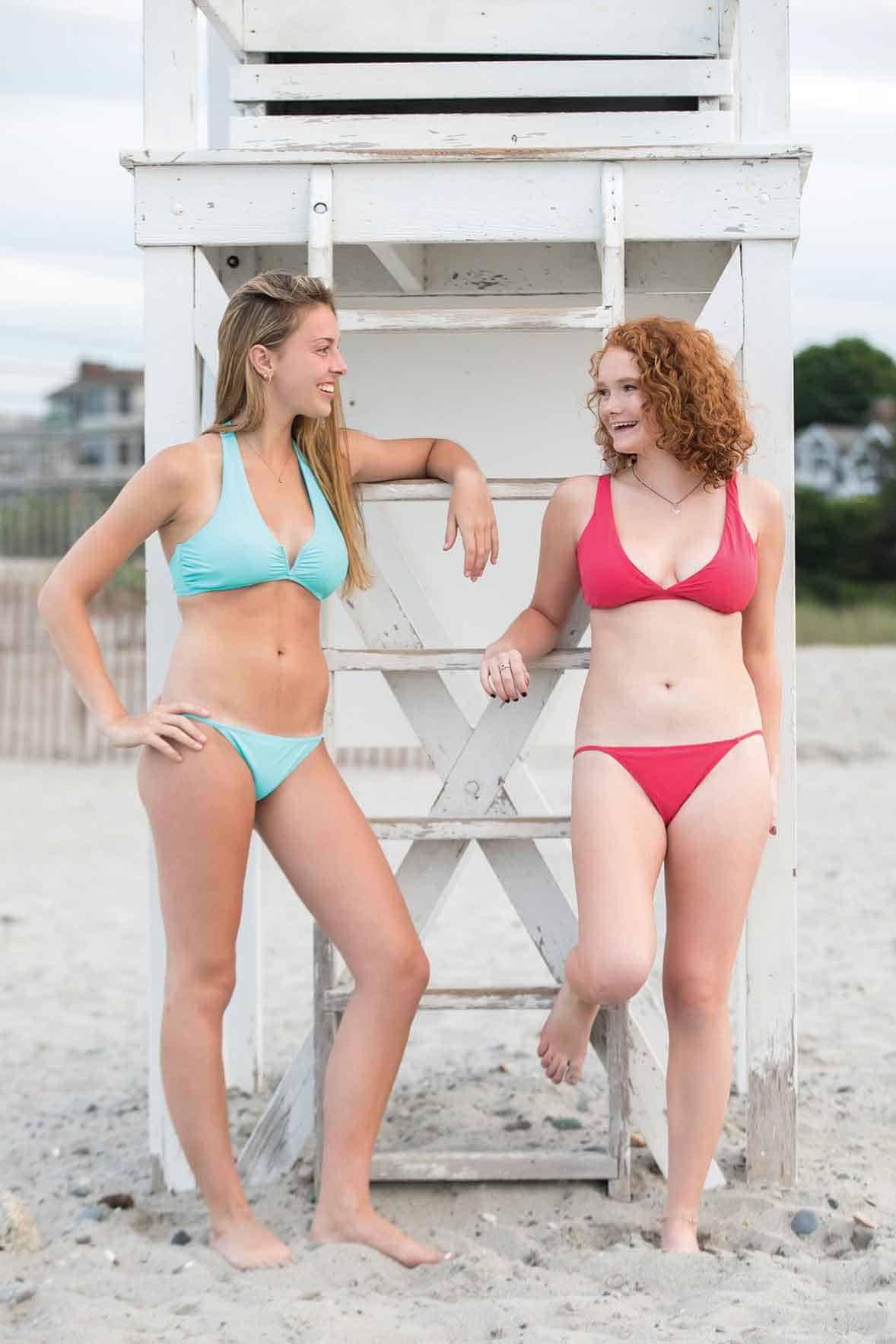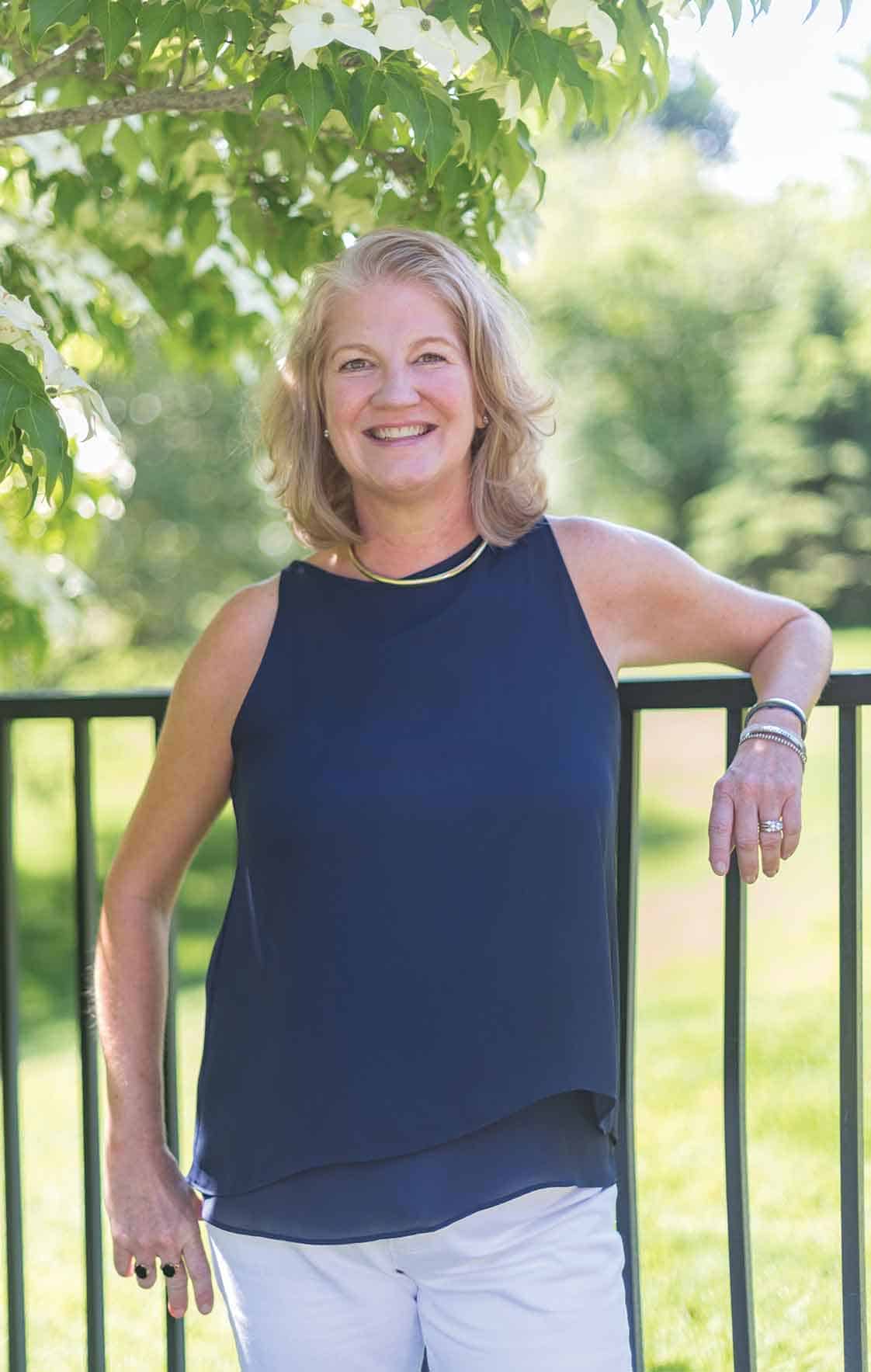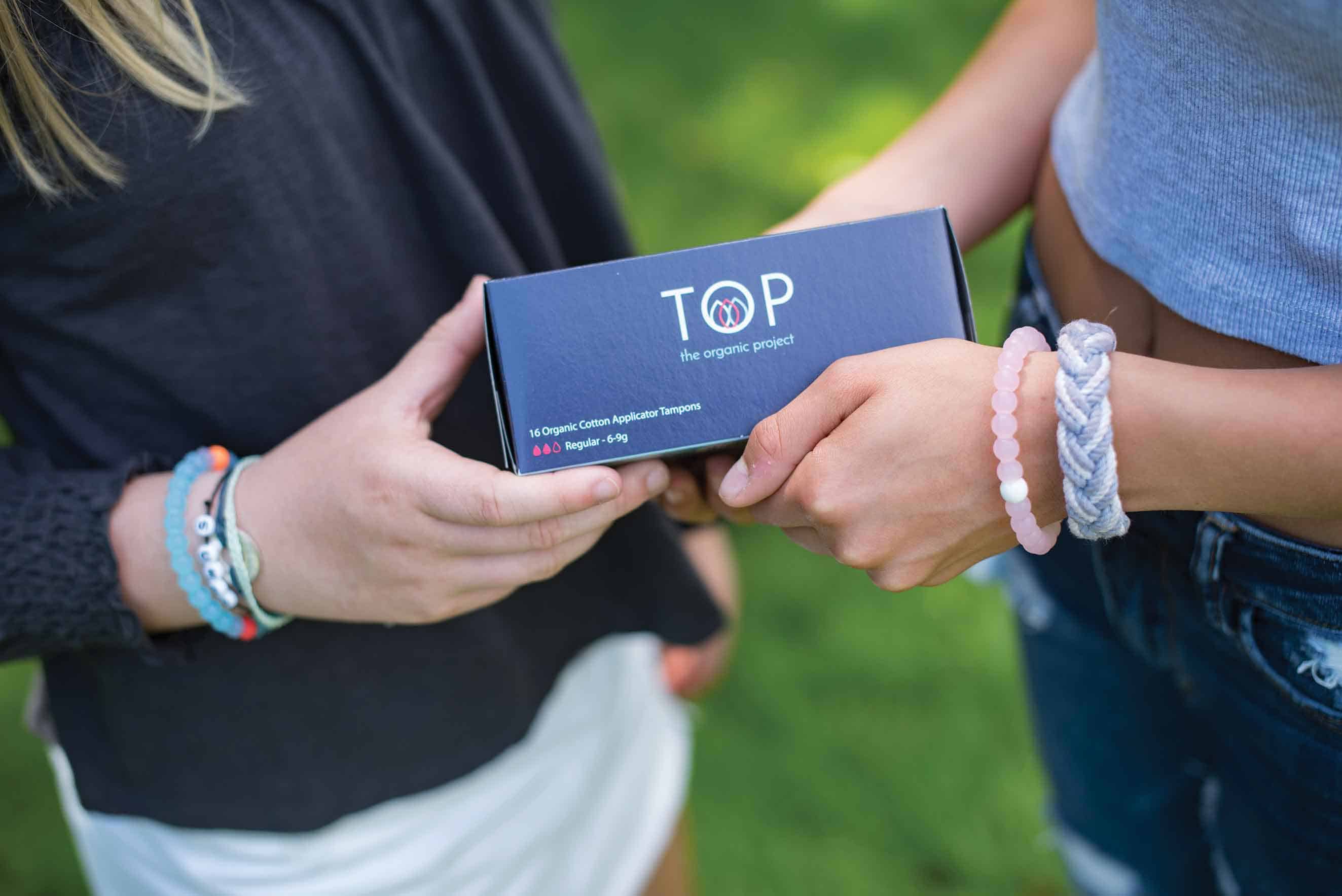Three women-owned startups based on the South Shore have made environmental and social responsibility part of their business model.
By Jennifer H. McInerney Photography by Julia Cumes and Rosemary Tufankjian
Creating a Ripple Effect with Life-Changing Water
Long before they cofounded Everybody Water, Cohasset residents Megan Hayes and Kimberly Reilly were friends and neighbors. Both were working moms and shared an entrepreneurial spirit. Hayes worked in corporate recruiting and headhunting for Digitas and Microsoft, while Reilly, a self-proclaimed serial entrepreneur, operated a custom lighting design company.
At just about the same time, both women realized that they had reached a career crossroads. “I got to a point where I wanted to do something more accessible, with a social impact,” says Reilly.
Once the friends decided to join forces, they took the time to research and explore their options to find an avenue where they could make the strongest impact. Having traveled extensively, they sought to include global concerns—which brought their focus to some of the world’s poorest populations.
“One of the fundamental problems we identified was a lack of easily available water,” says Hayes. “In villages that have no running water, the women and children spend up to five hours a day lugging water from the village pump back to their homes instead of going to school or earning an income. It’s really holding them back.”
Rather than donating containers of water to these villages, Hayes and Reilly were interested in supporting a permanent solution to this problem with the construction of infrastructure systems that would bring water directly into residents’ homes, in the form of kitchen faucets, showers and toilets. They decided to partner with Water1st International, a nonprofit organization that provides sustainable and sanitary water projects to impoverished communities in Honduras, Mozambique, Bangladesh and Ethiopia. According to Water1st, 100 million children, primarily girls, receive no education because they are busy hauling water.
On the front end of their business, Hayes and Reilly wanted to employ water as a vehicle for helping to fund global water projects, but they were uneasy about bottled water and the adverse implications of its packaging on the environment. They ultimately discovered Tetra Pak, an eco-friendly substitute to plastic water bottles. Everybody Water’s recyclable cartons are made from paperboard derived from responsibly managed forests, and the bio-based caps are manufactured from sugarcane. The water is purified in Michigan by reverse osmosis.
In the three years since they launched Everybody Water, Hayes and Reilly have had the opportunity to visit some of the project sites that their company supports, including in Honduras and Bangladesh. They’ve witnessed the changes that Everybody Water has helped bring to fruition. In addition to having access to clean running water, villagers now have hope.
“It’s amazing to see the effect these projects have, especially on the young girls,” notes Reilly. “The girls are filled with big ambitions, now that they don’t have to spend their time lugging water.”
Everybody Water’s first shipment of water became available to consumers in early 2019 and the company quickly became the talk of the town. In June they hydrated the athletes at the Cohasset Triathlon and in July they served as the official water at the Levitate Music and Arts Festival held at the Marshfield Fairgrounds (no plastic water bottles were sold).
Everybody Water is available online and at retail locations across the South Shore. Cohasset locations include: Seabird Coffee and Co., Atlantic Bagel, Peel Pizza Company, The Daily Press, The Fresh Feast, Balance Studio, the Snack Shack at Sandy Beach and Anchor & Sail General Store. In Hingham, the water is available at: Cracker Barrel, Lululemon, The Green Light, Bloomy Rind, Krigsman Yoga and The Barre Method. It can also be purchased at Paragon Boardwalk in Hull, Vela Juice Bar in Plymouth, Quench in Scituate, the Norwell General Store, and Reynolds Package Store in Norwell, among others. For more information, visit everybodywater.com.


Setting the Pace of Slow Fashion
As young as 4 years old, Hingham’s Jill Palese had a glimpse of her future career as a fashion designer. When playing with her dolls, she would envision more beautiful outfits and bring sketches to her mother to sew on a daily basis. Once it became clear that her daughter’s passion for clothing design was not a passing trend, her mother taught Palese how to sew and she began bringing her own creations to life.
Throughout her teenage years, Palese designed skating costumes not only for herself but for other skaters who admired her work. She also made custom prom dresses and other special-occasion gowns in high school and college.
Palese went on to pursue her degree at the Fashion Institute of Technology in New York City, where she focused on active sportswear that could be worn for more than one purpose and more than one season. After working in the fashion industry for more than two decades, Palese became a fan of slow fashion—a movement characterized as style that unfolds slowly, with a long, gradual lifespan. It’s a more responsible, less wasteful way of carefully creating a wardrobe that will be worn for years, if not decades. To that end, Palese designs pieces that are beautiful, yet timeless—above trends—that are built to last.
Palese recently decided to strike out on her own and create a new collection of active swimwear unlike anything on the market. She launched C2A (an abbreviation for Call To Action) Clothing and was joined by business partner Dan Rakauskas, also of Hingham.
Her new swimwear line, which is scheduled to debut in November, features high-quality swimwear made from quick-dry materials that are sweat- and water-wicking and chlorine-resistant (50-plus SPF). The swimsuits are available in five colors and the thoughtfully designed, fully lined swim tops and bottoms are intended to be versatile wardrobe pieces. One unique swimsuit ensemble, for example, features a swim skirt that can take the wearer from the beach to dinner or a bar. “The swim dress could be worn to parties,” says Palese.
Made from a high-quality Lycra, C2A Clothing has an estimated lifespan of up to 10 years, with proper care and laundering (a contrast to cheaper, disposable alternatives). In addition, C2A Clothing has partnered with Save the Harbor/Save the Bay, a nonprofit with a mission to restore and protect Boston Harbor, Massachusetts Bay and the local marine environment. For more information about the launch of C2A Clothing, visit C2Aclothing.com.
Introducing a New Era of Period Products
Duxbury resident Thyme Sullivan didn’t initially set out to become an innovator in the realm of tampons and sanitary pads. But, as a woman and a mother, she found herself in an eye-opening situation that changed the course of her career.
When her daughter first got her period, Sullivan began reading the fine print on the boxes of sanitary products, but didn’t find any information. She never stopped looking and eventually, she came to realize that this omission was intentional.
“It’s a category that nobody ever talks about,” says Sullivan, who previously worked for such consumer brands as Coke, Pepsi, and Nestle for 27 years. “There’s no transparency. When you look on the boxes, there’s no list of materials contained in pads, tampons and panty liners, and we have a right to know.” Unfortunately, she adds, the undisclosed components often include chemicals, dyes, synthetics and toxins. “We deserve safer and healthier feminine products,” says Sullivan.
The more she learned, the more Sullivan became determined to create a clean, organic alternative to the current offerings in feminine care. She introduced TOP: The Organic Project a year ago, overseeing the production of tampons, pads and liners that are 100 percent biodegradable, made from 100 percent organic cotton. The products are free of all toxins, synthetics and dyes. Her second cousin, Denielle Finkelstein, joined the team last fall as director of branding and marketing.
As Sullivan investigated the unsafe ingredients in brand-name products, she discovered an equally disturbing phenomenon called period poverty.
“Period poverty affects one in five girls in the United States,” says Sullivan. “Girls are missing school because they can’t afford the high price of period products. They miss up to a week of school every month because they cannot go to school without period products. Period poverty means that parents have to choose between buying food for their families and buying tampons for their daughters.”
In response, TOP is easing this financial barrier by donating its tampons, pads and liners to girls in need so that having their period doesn’t stand in the way of their education. Locally, the company has donated products to the Amos House in Providence, the Boston Collegiate Charter School in Dorchester, Empower Her in Norwell and Newell Charter School in Providence.
TOP offers Ultra Thin Organic Cotton Pads with Wings (daytime and nighttime); Ultra Thin Organic Cotton Liners; and Organic Cotton Applicator Tampons. The labeling and wording on the boxes is informative and detailed, providing the transparency that Sullivan found lacking among similar products. All of the ingredients are listed, along with guidelines regarding absorbency levels and a safety warning about Toxic Shock Syndrome (TSS) on the tampon box.
The company’s mission is also stated clearly on the back: “We believe in giving back. Many women do not have access to or cannot afford basic feminine hygiene products. This is a health, human rights, and gender equality issue in the U.S. and around the world.” TOP products are available as one-time orders or by monthly subscription. For more information, visit toporganicproject.com.




